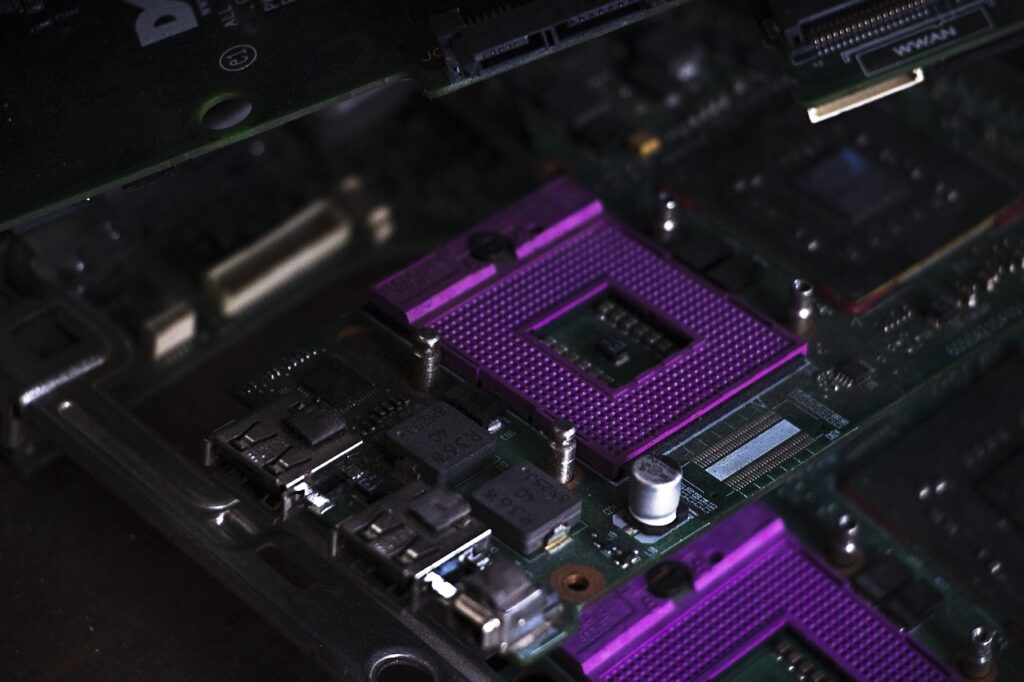Germany is set to invest €2 billion into its semiconductor industry, aiming to enhance the resilience of Europe’s chip supply chain amid growing global challenges. This move follows Intel’s recent delay of its €30 billion chip factory project in Magdeburg, a setback that has underscored the need for stronger, local semiconductor production in Europe. The German government’s plan is designed to reduce reliance on foreign suppliers and position Germany as a key player in the global semiconductor market.
Strengthening Europe’s Semiconductor Supply Amid Global Disruptions
The global semiconductor shortage, worsened by supply chain disruptions during the COVID-19 pandemic, has highlighted vulnerabilities in chip production. Compounding this issue are rising geopolitical tensions, particularly between the U.S. and China, over Taiwan, a major hub for semiconductor manufacturing. These challenges have prompted nations, including Germany, to increase efforts to localize chip production and reduce dependence on external suppliers.
Germany’s investment is in line with the European Union’s ambitious 2023 Chips Act, which aims to double Europe’s share of the global semiconductor market to 20% by 2030. By providing subsidies for advanced production technologies, Germany seeks to secure a more stable and independent supply of semiconductors, vital for everything from artificial intelligence to consumer electronics.
Setbacks in Germany’s Semiconductor Sector
Germany’s semiconductor sector has faced significant setbacks recently. Intel’s decision to delay the construction of its €30 billion chip factory in Magdeburg was a major blow to the country’s ambitions. This project was expected to be the largest recipient of EU subsidies under the Chips Act, with €10 billion in funding allocated to the factory. Additionally, other planned semiconductor ventures, such as a collaboration between Wolfspeed Inc. and ZF Friedrichshafen AG, were also canceled, creating uncertainty for Germany’s future in the semiconductor industry.
Despite these challenges, the German government remains committed to fostering a robust semiconductor ecosystem. The newly announced €2 billion investment will support between 10 and 15 projects, spanning various aspects of semiconductor production, including wafer manufacturing and chip assembly. The focus is on building a sustainable and innovative semiconductor industry in both Germany and Europe as a whole.
Fostering Innovation and Long-Term Growth
Annika Einhorn, a spokesperson for Germany’s Ministry of Economic Affairs, explained that the subsidies will be directed toward projects that aim to develop advanced production capacities “significantly exceeding the current state of the art.” The goal is to establish Germany as a leader in semiconductor innovation while encouraging private sector participation and long-term industry growth. By investing in state-of-the-art manufacturing technologies, the government hopes to address both current supply shortages and the future demand for semiconductors.
Germany’s previous subsidies, granted to companies such as Intel and a joint venture between Infineon and TSMC in Dresden, have been part of the European Chips Act. However, the political landscape in Germany is shifting with upcoming elections in February 2025, which may influence how the new government finalizes the funding and strategic direction for the semiconductor sector.
Securing Technological Independence and Supply Chain Stability
The €2 billion subsidy initiative reflects Germany’s broader strategy to ensure technological independence and safeguard the stability of its semiconductor supply chain. As global demand for chips continues to rise, securing domestic production capabilities will be crucial for Germany and Europe to maintain their competitive edge in the global tech industry.
With the ongoing global semiconductor shortage and increasing geopolitical risks, Germany’s push for localized production could play a pivotal role in reducing supply chain vulnerabilities. By investing in its semiconductor industry, Germany aims to strengthen its position as a technological leader in Europe and ensure that it is not dependent on outside suppliers for critical components.
